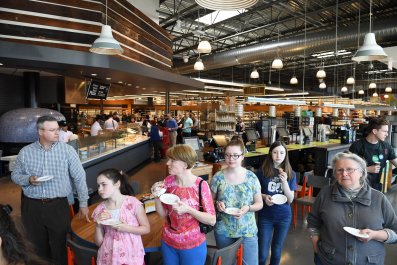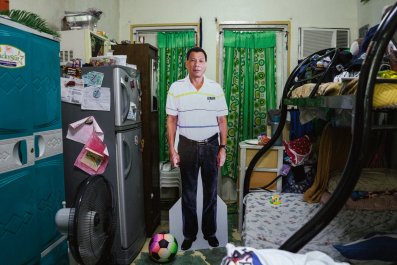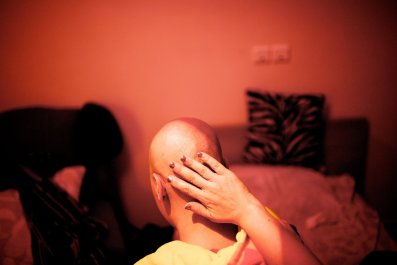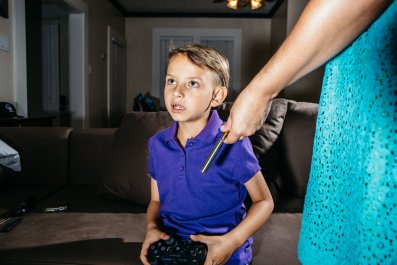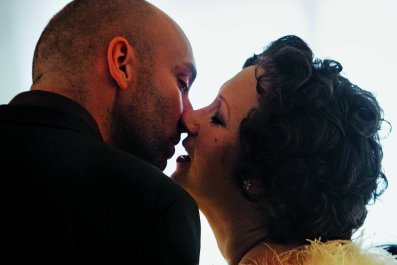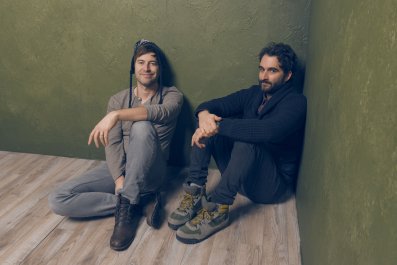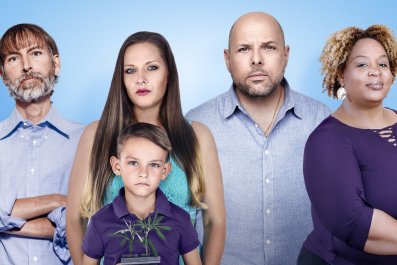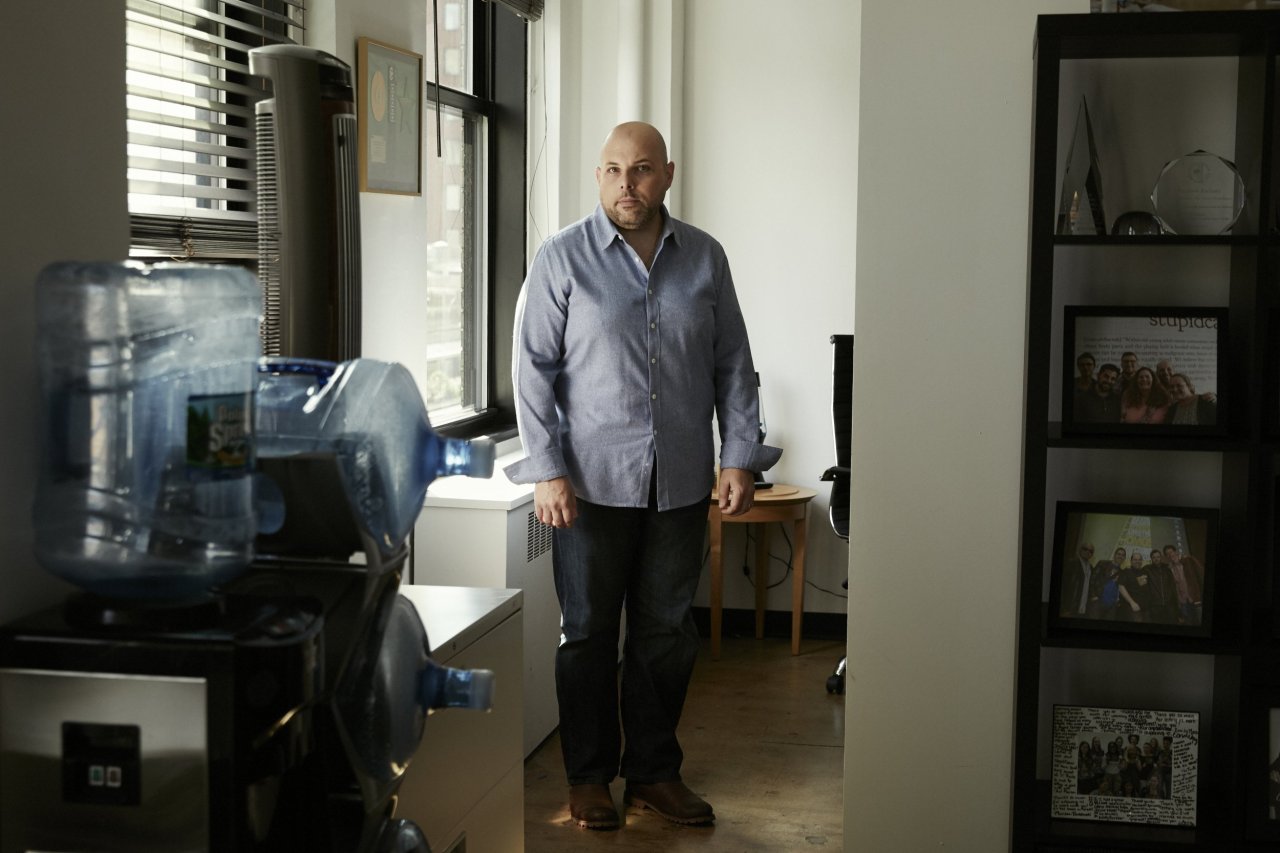
Cancer is primarily a disease of aging, but it still affects plenty of young people. According to the National Cancer Institute, some 70,000 people aged 13 to 39 in the U.S. are diagnosed each year with the disease.
Matthew Zachary, founder and CEO of Stupid Cancer—an advocacy and support organization for Generation X and millennial cancer patients and survivors—knows all too well the unique challenges young adults face when diagnosed with the Big C.
Zachary, 43, a classically trained pianist, was in his senior year of college when his left hand stopped working. Doctors soon diagnosed him with a brain tumor and gave him six months to live. To this day, he struggles with the physical and psychological impact of the disease and his treatment for it. But most of all, he remembers feeling very alone.
This year marks a decade since Zachary—who describes himself as "respectfully disdainful and strategically disruptive"—founded Stupid Cancer, which provides young people with online resources and age-appropriate meetup events. It also hosts an annual trade show, known as CancerCon, that's been attended by 8,000 patients and survivors over the last 10 years.
RELATED: A young leukemia survivor skipped chemo and took medical marijuana instead
Newsweek sat down with Zachary to discuss why young people need some place other than a "roundtable with old people" to sort through the mess that cancer brings. Like a local bar. With beer.
Why is it important for young adults to have their own cancer organization?
We're different for the obvious reasons: We're in our fertile years; we're in school; we're just building our careers; we're just starting to date; we're just starting to marry; we're just starting to have children.
Ten years ago, people could only turn to organizations like Livestrong [and] the American Cancer Society. Or there were disease-specific organizations, like the Leukemia & Lymphoma Society.
Now, there's an army of people in their teens, 20s and 30s who can say, "I'm pissed, and you're pissed, and that's kind of cool, because we can be pissed together." I never realized I was so alone until I founded this organization.
What was the initial reaction from the cancer community?
Most people were like: Thank God, where were you when I needed you? But at the same time, the other feedback was: Cancer's not so great in your 40s either, buddy. And I said, "You know what? I'm sorry. This is who we are, and everything that we've done in the last 10 years is based on data from the National Cancer Institute and based on outcomes about Gen X and millennial cancer." Once, someone in the press referred to us as "like Festivus." We were the cancer group that wasn't athletic, or pink ribbons or for a cure.
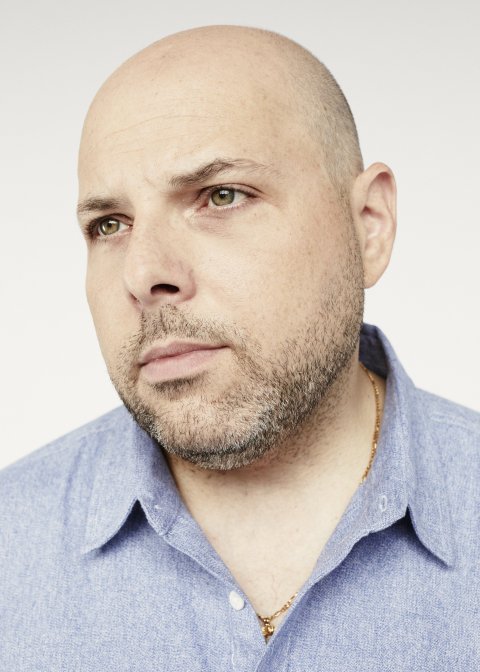
What makes the cancer experience different for younger adults?
According to a National Cancer Institute report, survival rates for young adults have not improved in 40 years, and that is compared to other age groups. If you're diagnosed with cancer between 15 and 39, you suffer more, you go bankrupt more, you do not become a productive member of society, you do not get to enjoy the fruits of your 20s and 30s. And that's not acceptable. So this is about building a quality for outcomes based on your age. It's about how well you can live, and ideally recover and build a life for yourself you deserve, because you didn't ask to be sick.
What about adult pediatric cancer survivors?
There are hundreds of thousands of long-term pediatric cancer survivors in the U.S. who are now young adults and had cancer before age 18. On average, pediatric cancer survival rates are between 90 and 95 percent.
RELATED: What we know about how cancer starts could all be wrong
There's a massive gap in understanding the transition from pediatric cancer to adult primary care. You don't remember what your treatment was because you were 3. You now have cardiomyopathy, or you're in early menopause, you're diabetic, susceptible to other cancers, you have osteopenia or osteoporosis.
But, still, you have unique needs as a 20-something who didn't get cancer in their 20s but who had it in their teens or single digits. We are now almost the repository of those near half-million Americans who need a community because they were kicked out of pediatrics and there is no long-term standard across the country on how to measure the impact of not dying.




